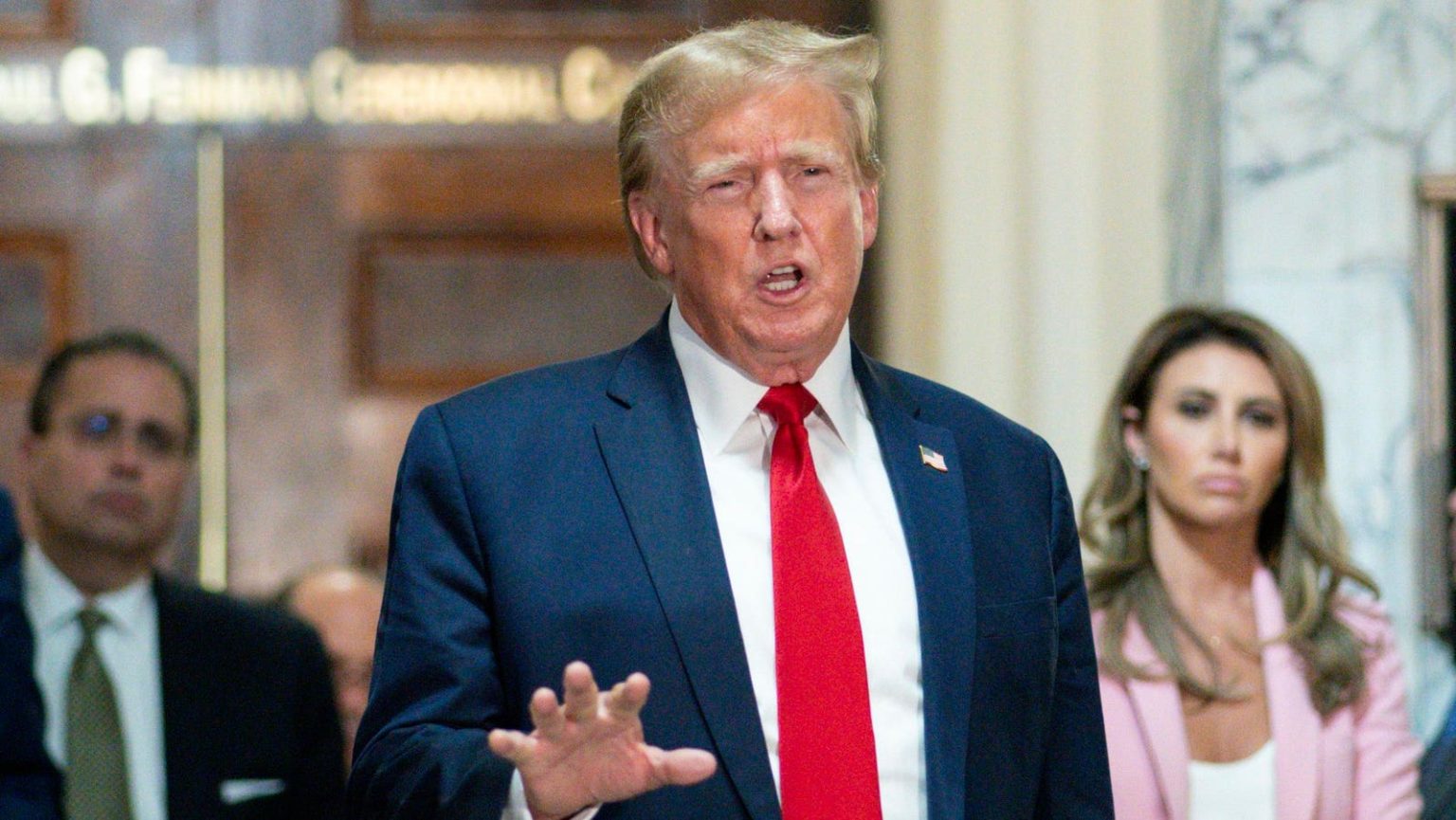In a recent filing, the New York Attorney General’s office disputed former President Donald Trump’s claims that he can’t secure a bond in his civil fraud case, calling them “unreliable” and based on a “false premise.” Trump is trying to delay paying the $454.2 million judgment against him, days before the attorney general could start seizing his properties. He had asked a New York appeals court to pause the judgment while he appeals the ruling, claiming he couldn’t secure a bond for the full amount despite approaching 30 companies.
The attorney general’s office argued against Trump’s request, pointing out that he could use multiple companies to secure multiple bonds for different parts of the full amount. Attorney Nathan Fan, who authored the filing, also questioned Trump’s claim that companies were unwilling to secure bonds for large amounts, stating that billion-dollar judgments are often fully bonded on appeal. Trump’s lawyers and insurance broker, who attested to his inability to secure a bond, were deemed unreliable by the court due to conflicts of interest.
Fan also noted that Trump had provided no evidence to support his claim that companies wouldn’t accept real estate as collateral for a bond, as Trump had argued that he had to use real estate because he didn’t have enough cash. The attorney argued that even if Trump couldn’t secure a bond, he should at least consent to having the court hold enough real estate assets to cover the judgment. It remains to be seen when the court will rule on Trump’s request to pause the judgment, with the attorney general’s office expected to start enforcing it by March 25 if he doesn’t pay.
The total judgment against Trump and his co-defendants amounts to $464.6 million, including fines against his sons and former CFO. Trump would have to pay $557 million in cash or cash equivalents to secure an appeals bond for the full amount, factoring in interest and premiums. Forbes estimates Trump’s net worth at $2.6 billion, with only $413 million in liquid assets, making it difficult for him to cover what he owes. The fraud case against Trump and his business associates involved inflating the value of their assets on financial statements to obtain more favorable business deals, with evidence suggesting that fraud was committed knowingly.
Fan suggested that companies may be reluctant to accept Trump’s real estate as collateral due to doubts about the true value of his holdings. The attorney general’s office and Trump’s lawyers continue to clash over the issue, with the court yet to make a decision on Trump’s request to delay the judgment. The case against Trump has been a long-standing legal battle, with the former president denouncing it as a politically motivated attack on his presidential campaign. As the deadline for payment approaches, Trump is facing increasing pressure to resolve the judgment against him.


